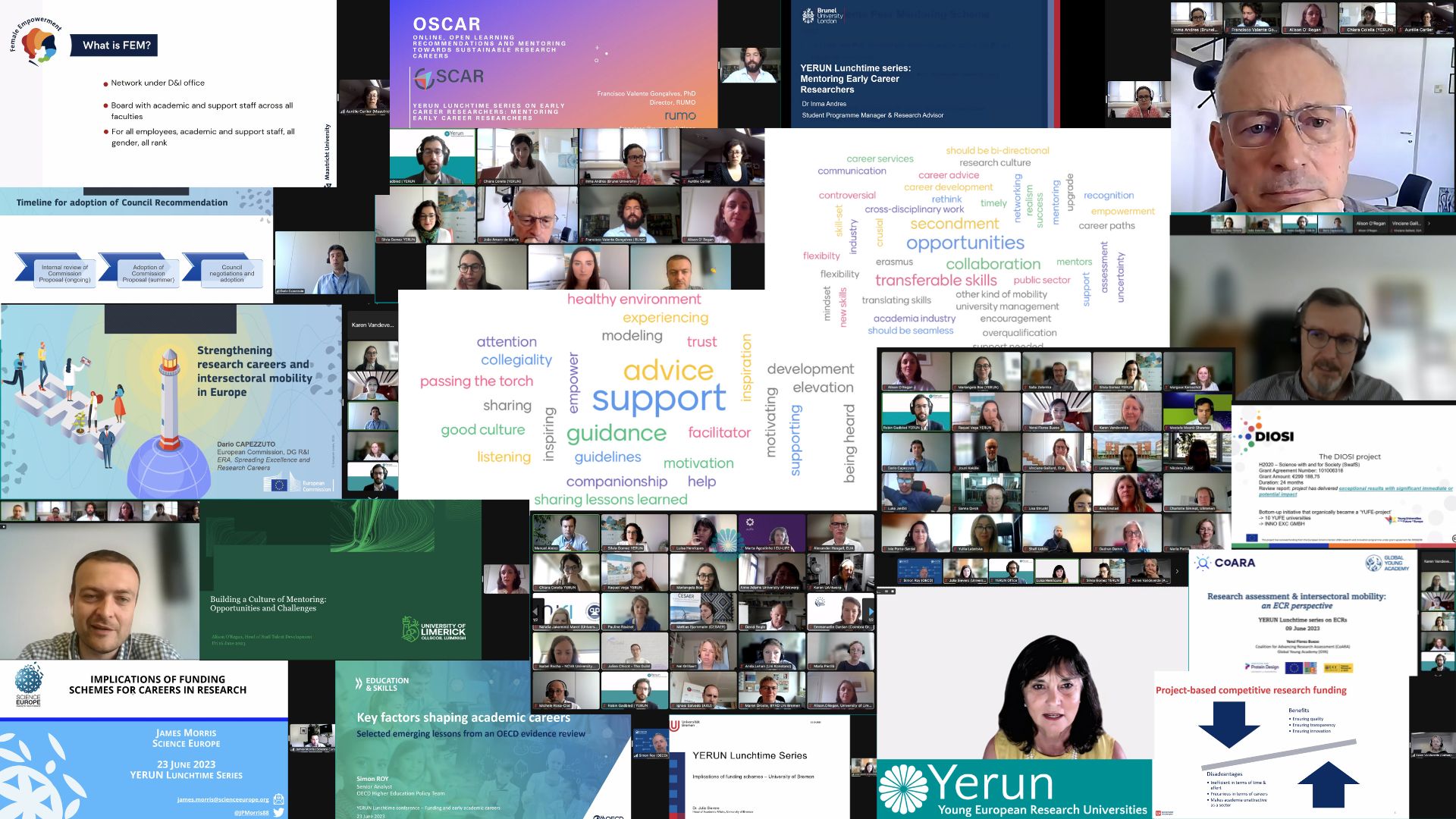As part of its extensive work on ERA Action 4 (Research Careers) and related initiatives, as well as on ERA Action 3 (Reform of Research Assessment) and within CoARA, in June the YERUN Office together with the members of the ad hoc group on academic careers steered the organisation of a series of lunchtime events dedicated to Early Career Researchers (ECRs).
The events took place online on 9, 16, 23 and 30 June. Featured speakers, including policymakers in the field of research and academic careers at the European Commission (from both DG RTD and DG EAC), stakeholder representatives, HR directors, heads of Doctoral Schools, relevant experts from YERUN and other universities networks, exchanged views on four key topics: intersectoral mobility, mentoring, the impact of funding schemes on careers, and the practical challenges faced by university services to implement career policies.
The event series attracted 300 participants in total and provided a great opportunity for stimulating discussions on a topic that is currently very high on the international agendas proven by the recently published EC set of measures to improve research careers.
If you missed the YERUN events, don’t worry! You can find below a short summary of each event and the link to a more extensive snapshot for each one of them.
The first event focused on early career researchers and intersectoral mobility. The discussions pointed to the need to facilitate seamless and two-way mobility of ECRs between academia and the wider job market, looking at current initiatives at policy and institutional levels.
During the second event on mentoring for early career researchers, the panellists looked into the different meanings and functions attributed to mentoring and offered examples of strategies for the promotion of mentoring in universities.
While discussing funding schemes and how, together with legislation, they affect workforce strategies (including careers and development) that universities can adopt in relation to early-stage researchers and academics, the speakers of the third event discussed the funding and legal contexts in which research and academic careers develop in universities.
The fourth and final event of the series took the form of a closed roundtable between policy-makers and policy-implementers, who engaged in constructive discussions to identify challenges and solutions to issues relating to the implementation of policies for careers in academia. Discussions touched on the multifaceted and multilevel challenges universities tackle when implementing policy for research and academic careers.
YERUN would like to thank all the colleagues, members of the ad hoc group on academic careers, for the brilliant work done together on the series, the speakers that accompanied us during the series and the many attendees. The input shared will pave the way for the continuation of our work on this key topic.










